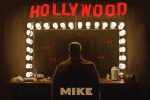Last weekend, “Bohemian Rhapsody” made $122.5 million in the international box office during its opening weekend. Despite the high revenue, however, the Queen biopic didn’t seem to hit the right notes for most critics. In fact, although Rami Malek’s performance as Freddie Mercury was highly regarded, the script lacked thematically and seemed inconsistent with what really happened.
The film starts off when Mercury goes to a nightclub and sees the band Smile. After hearing their performance, the ambitious college student decides that he wants to join the band as lead singer. Band guitarist Brian May (Gwilym Lee) and drummer Roger Taylor (Ben Hardy) offer him the spot after a spontaneous audition because their initial lead singer, Tim Staffell (Jack Roth), had just quit to join another group. The movie almost made it seem like Mercury meeting his future band mates was by chance, not by hard work and persistence.
The reality of the situation, though, was that Staffell knew he was leaving the band a while before the concert, and Mercury knew about Staffell’s decision. Mercury and Staffell were roommates, and the want-to-be rockstar knew his bandmates for quite some time.
In the film, Mercury officially starts singing with May and Taylor, and they add soon bassist John Deacon (Joseph Mazzello) to complete the band. They decide they want to start playing shows more regularly, and thus agree on the band name Queen to gain more recognition with potential record companies. And it works — they quickly land a deal with EMI executive, Ray Foster (Mike Myers), who, later, has some doubts about their singles, specifically their single “Bohemian Rhapsody,” hence the name of the film.
Even though Queen was signed with EMI records to produce their albums, there was nobody by the name of Ray Foster who took any part in working with Queen. Foster’s character was loosely based off of the real executive, Roy Featherstone. I’m assuming screenwriter Anthony McCarten didn’t want to use Featherstone because Foster seemed to fit the tone of the movie and sounded more memorable.
During the time when Queen first acquired their record deal, Mercury got engaged to a clothing store clerk, Mary Austin. In the film, the singer first spots her in the crowd during one his concerts. However, Austin dated Queen guitarist, May, prior to her relationship with the lead singer.
When another one of Mercury’s love interests is introduced, however, is when the real flaws of the script begin to show.
After the band releases a few albums and goes on tour, the successful heartbreaker continues to clarify his sexuality. One night, Mercury throws an extravagant party to celebrate a band, but meets a waiter, Jim Hutton. The couple fall in love, but Hutton lets the singer go, saying that he should find him again when he loves himself.
In real life, Mercury made a failed pass at Hutton, and they discussed how “lost” Mercury was. Instead, the pair met at a bar, and Hutton worked as a hairdresser, not as a waiter. Years later, the famous singer does reach out to Hutton, but the way that story ends is still unknown. This may be minute detail, but when a film is supposed to be a biopic, it’s expected to get all of the details are right. Even if it is something as small as how the couple met.
“Bohemian Rhapsody” did seem to neglect some major details about the dynamic of the band.
It was no secret the Mercury did exude confidence, and at times a little too much. The lead singer showed strength in faking it, most of the time. Shortly after a band press conference to promote their album, Mercury announced that he received a solo record deal. The film depicts the band members to be sour and angry at the fact that only Mercury got an offer, but reality told a different story.
May, Taylor, and Deacon didn’t mind that Mercury was releasing his own album. He continued to work on Queen’s studio album, “The Works.” In the movie, it made it seem like Mercury was given this special opportunity and that the rest of the members were estranged. But both May and Taylor had their own solo albums released as well.
Following the solo record deal, Mercury heads off to Munich, in real life as well as in the film. When in Munich, the new successful soloist rekindles an old relationship with his personal manager, Paul Prenter (Allen Leach). The “happy” couple attend multiple orgies together and seem to be working on their previous issues.
At the time, the rest of the world was dealing with the spreading of the AIDS epidemic. Queen had been invited to perform at the Live Aid benefit concert, but Prenter never told Mercury about the opportunity. Infuriated, Mercury leaves his manager and lover behind to return to London and ask for the band’s forgiveness. But before he leaves to return home, Mercury decided to get tested, just in case.
Upon returning, the singer finds out he has been infected. He tells his band mates during a rehearsal just a week before their performance. Queen ended up giving a crowd-pleasing performance and were able to raise a great amount of money for AIDS research. The movie ends years later when the band reunites to set-up the Mercury Phoenix Trust in honor of Mercury and his AIDS diagnosis.
Despite the truly touching ending, the way Mercury and the band found out about his diagnosis wasn’t that poetic.
When Mercury released his first album, he wasn’t officially out of the band. There was no beef between him and his bandmates, and they had been performing frequently. Mercury never found out about his diagnosis until 1987, two years after the Live Aid concert happened.
Although “Bohemian Rhapsody” told a story about a misfit group of musicians who somehow made their mark, it had the means of being a biopic but quickly turned into a drama about Freddie Mercury’s journey to becoming a household name.
After watching the film, I questioned why it was called “Bohemian Rhapsody” over any of their other songs like “We Will Rock You” or “Another One Bites the Dust.” “Bohemian Rhapsody” literally translates to artist with a fantasy, an artist with a vision. Freddie Mercury was truly a “Bohemian Rhapsody,” but the film only highlighted some of his darkest times.
Time and time again, we’ve seen movies that strive to create a film that honors or highlights significant people or times. A-list actors have been cast for these epic roles and production is incredible, but the script lacks the depth that people crave for. This past year, we’ve seen it with “A Wrinkle in Time,” “First Man” and now, “Bohemian Rhapsody.”
















